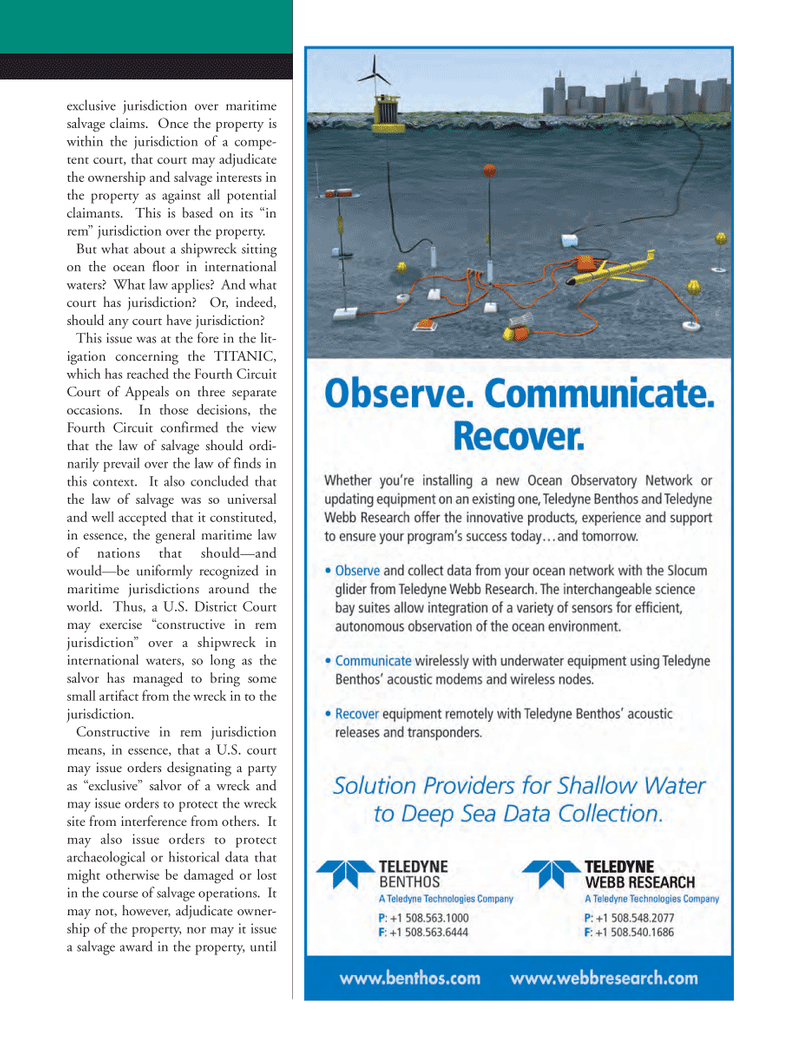
Page 19: of Marine Technology Magazine (September 2011)
Ocean Observation
Read this page in Pdf, Flash or Html5 edition of September 2011 Marine Technology Magazine
exclusive jurisdiction over maritime salvage claims. Once the property is within the jurisdiction of a compe-tent court, that court may adjudicate the ownership and salvage interests in the property as against all potential claimants. This is based on its ?in rem? jurisdiction over the property. But what about a shipwreck sitting on the ocean floor in internationalwaters? What law applies? And what court has jurisdiction? Or, indeed, should any court have jurisdiction? This issue was at the fore in the lit- igation concerning the TITANIC, which has reached the Fourth Circuit Court of Appeals on three separate occasions. In those decisions, the Fourth Circuit confirmed the view that the law of salvage should ordi- narily prevail over the law of finds in this context. It also concluded that the law of salvage was so universal and well accepted that it constituted, in essence, the general maritime lawof nations that should?andwould?be uniformly recognized in maritime jurisdictions around the world. Thus, a U.S. District Court may exercise ?constructive in rem jurisdiction? over a shipwreck in international waters, so long as thesalvor has managed to bring some small artifact from the wreck in to the jurisdiction.Constructive in rem jurisdiction means, in essence, that a U.S. court may issue orders designating a party as ?exclusive? salvor of a wreck and may issue orders to protect the wreck site from interference from others. It may also issue orders to protect archaeological or historical data that might otherwise be damaged or lost in the course of salvage operations. It may not, however, adjudicate owner- ship of the property, nor may it issue a salvage award in the property, until MTR#7 (18-33):MTR Layouts 8/29/2011 9:36 AM Page 19

 18
18

 20
20
